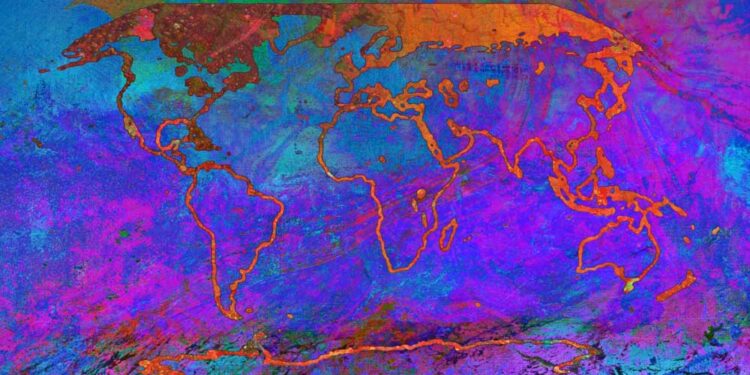From Safety4Sea
Strong reductions in CO2 emissions and other GHG could limit climate change
Many of the climate changes observed on Earth are unprecedented in thousands of years, and some of the changes already set in motion—such as continued sea level rise—are irreversible over hundreds to thousands of years, says the latest Intergovernmental Panel on Climate Change (IPCC) Report, released earlier in August.
However, strong and sustained reductions in CO2 emissions and other GHG would limit climate change.
Many of the climate changes observed on Earth are unprecedented in thousands of years, and some of the changes already set in motion—such as continued sea level rise—are irreversible over hundreds to thousands of years, says the latest Intergovernmental Panel on Climate Change (IPCC) Report, released earlier in August.
However, strong and sustained reductions in CO2 emissions and other GHG would limit climate change.
A new scientific report from the Intergovernmental Panel on Climate Change (IPCC) warns we are on a crash course towards catastrophe if global temperatures are allowed to rise.
The window to slow or even halt some of these worsening impacts is rapidly closing, and the message is clear: we must take action now.
While benefits for air quality would come quickly, it could take 20-30 years to see global temperatures stabilize, according to the IPCC Working Group I report, Climate Change 2021: the Physical Science Basis, approved on Friday by 195 member governments of the IPCC, through a virtual approval session that was held over two weeks starting on July 26.
Among others, the report shows that emissions of greenhouse gases from human activities are responsible for approximately 1.1°C of warming since 1850-1900, and finds that averaged over the next 20 years, global temperature is expected to reach or exceed 1.5°C of warming.
Many characteristics of climate change directly depend on the level of global warming, but what people experience is often very different to the global average.
For example, warming over land is larger than the global average, and it is more than twice as high in the Arctic.
Climate change is already affecting every region on Earth, in multiple ways.
The changes we experience will increase with additional warming,
…said IPCC Working Group I Co-Chair Panmao Zhai.
The report projects that in the coming decades, climate changes will increase in all regions.
For 1.5°C of global warming, there will be increasing heat waves, longer warm seasons and shorter cold seasons.
At 2°C of global warming, heat extremes would more often reach critical tolerance thresholds for agriculture and health, the report shows.
But it is not just about temperature.
Climate change is bringing multiple different changes in different regions – which will all increase with further warming.
These include changes to wetness and dryness, to winds, snow and ice, coastal areas and oceans.
For example:
- Climate change is intensifying the water cycle. This brings more intense rainfall and associated flooding, as well as more intense drought in many regions.
- Climate change is affecting rainfall patterns. In high latitudes, precipitation is likely to increase, while it is projected to decrease over large parts of the subtropics. Changes to monsoon precipitation are expected, which will vary by region.
- Coastal areas will see continued sea level rise throughout the 21st century, contributing to more frequent and severe coastal flooding in low-lying areas and coastal erosion. Extreme sea level events that previously occurred once in 100 years could happen every year by the end of this century.
- Further warming will amplify permafrost thawing, and the loss of seasonal snow cover, melting of glaciers and ice sheets, and loss of summer Arctic sea ice.
- Changes to the ocean, including warming, more frequent marine heatwaves, ocean acidification, and reduced oxygen levels have been clearly linked to human influence. These changes affect both ocean ecosystems and the people that rely on them, and they will continue throughout at least the rest of this century.
- For cities, some aspects of climate change may be amplified, including heat (since urban areas are usually warmer than their surroundings), flooding from heavy precipitation events and sea level rise in coastal cities.
Yet the new report also reflects major advances in the science of attribution – understanding the role of climate change in intensifying specific weather and climate events such as extreme heat waves and heavy rainfall events.
The report also shows that human actions still have the potential to determine the future course of climate.
The evidence is clear that CO2 is the main driver of climate change, even as other greenhouse gases and air pollutants also affect the climate.
Stabilizing the climate will require strong, rapid, and sustained reductions in greenhouse gas emissions, and reaching net-zero CO2 emissions.
Limiting other greenhouse gases and air pollutants, especially methane, could have benefits both for health and the climate,
…said IPCC Working Group I Co-Chair Panmao Zhai.
Links :
- NewScientist : Will the IPCC report help focus politicians' minds on climate change?
- The Guardian : The IPCC report is a massive alert that the time for climate action is nearly gone, but crucially not gone yet
- The Hill : Climate change: The deep ocean protects us from ourselves — for now
- Ted : The new IPCC climate report is hugely important — and here are 6 main takeaways
- NYTimes : 5 takeaways from the major new U.N. climate report

No comments:
Post a Comment